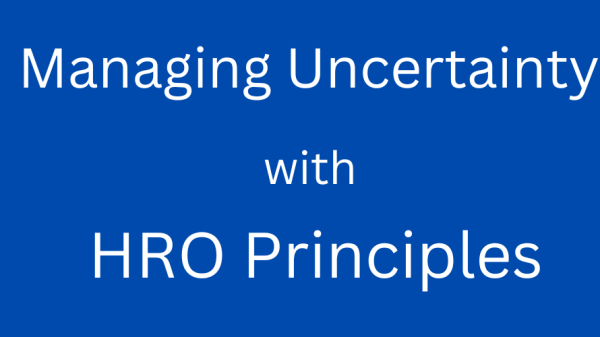People looking for a solution to their debt-related problems become an easy target for scammers because they are “desperately” seeking a solution for their debt. They are eager to find a debt consolidation solution as quickly as possible. It is a common belief that getting a debt consolidation loan is an easy process. Although it doesn’t mean that the consolidation process should be a complicated one, there are however some steps that should be followed. And these steps could help you avoid possible scams. Furthermore, before shopping for a debt consolidation loan, you should be aware of the possible debt consolidation scams that exist. Proceeded to the types of debt consolidation scams, keep in mind that nobody could or should guarantee you that you will receive the loan. In addition, prior to understanding debt consolidation scams, you should be familiar with the basics of debt consolidation.
Types of debt consolidation scams
Upfront payment (payment of fee) – if you are prey to this form of scam, you would be asked to make an upfront payment or pay a certain fee in advance. This payment is asked prior to the delivery of the loan. Afterward, the loan will not be delivered, so you are stacked with your debts. According to the Federal Trade Commission (FTC), it is illegal for a company to charge you any upfront fees.
Non-profits status – is yet another way you could be scammed, where the companies are claiming a not-for-profit status for the purpose of gaining trust and credibility by clients. In reality, these non-profit entities could be transferring funds to profit companies. Meaning that they will be focused on taking out as much money as they can out of your pocket.
Fees charged – although this is more of a moral issue and cannot be considered a scam in its basic definition, you should pay close attention to the fees you are going to be charged with. Meaning that finance companies might not fully inform you about the fees you are going to be charged with prior to signing any agreement with them. Keep in mind that these fees can add up to a substantial amount, thus increasing your debt even further.
Directly withdrawing from your bank account – some scams involve (impose) the need for the consolidation company to directly withdraw money from your bank account. Noteworthy mentioning is that there are scam-free companies that might require the same thing. Nevertheless, when it comes to being a victim of this form of scam, the interesting thing is that the process of stopping (or canceling) the withdrawal is almost impossible. And you might be forced to close the account in order to stop the withdrawal. Always read the agreement and any other document before signing.
No payment has been made towards your debt – this is yet another form of scam that could be executed by the finance companies. In a sense, although you are charged with fees, and a withdrawal is made each month, the finance company is not transferring any funds to your creditors. Thus, instead of decreasing, your debt is increasing even further because of different penalties and accrued interest additionally charged by your lenders.
Contract validity – in order for the “fake” consolidation companies to limit their liabilities, the contract you are signing could say that you could sue the company in specific states, not in the state you are living. Thus you should know in which jurisdiction the finance company is liable for its actions.
An information collection scam – is a scam where you have provided your personal information on some professionally looking website for whatever reason (checking the debt consolidation alternatives, acquiring additional info, etc.). What happens is that the website where you have entered your personal info is selling your information to scammers. After some time has gone by, you might get a call that you will get sued because you haven’t paid some debt. They want to cash in on your naivety. Within this scam, the company might ask you for personal information prior to signing the contract. Before providing any personal info, check the company’s credibility. This could be done fairly easily these days. You could start by checking the online reviews about the specific company.
Unusually low-interest rates – they want to attract you through an offer of extremely low interest and thus go with the story that you are going to save a substantial amount in interest alone. What happens next is that their low-interest rates are offset by extremely high fees you will get charged later on. For this reason, they will avoid disclosing all fees that will be charged. Thus, in order to protect yourself against possible manipulation, always ask about the fees, and make sure that you are acquainted with all fees in your agreement prior to signing any document.
These types of scams are the most common, but keep in mind that they could be simultaneously used by a single scammer finance company. For instance, one company could charge you a high fee and ask for direct withdrawal without making any payment toward your creditors.
How to avoid debt consolidation scams?
There are some basic steps suggested by the Federal Trade Commission (FTC) that should be taken into consideration before applying for a consolidation loan. They are as follows:
- Don’t fall for companies that are pressuring you to take a loan or that to guarantee the approval of a loan without even considering your financial situation.
- Make sure that you are fully aware of the company’s operations and products. Does it have a wide spectrum of options? Is there education on how to cope with your debt
- Make sure that you have informed your creditors about your plans. Ask if they would work with the company you are considering.
- Before signing an agreement with the finance company and before making any payment, confirm with your creditors that they accept the proposed plan. In the meantime, don’t stop paying your obligations until you receive a confirmation from your creditors.
- Read the fine print – ensure that you are aware of the agreement, and limit the possibility for costly mistakes to occur. The agreement should specify the plans and time frame of the finance company.
- After everything is set and the agreement is confirmed, make a periodical (maybe the best is every month) control of your statements and contact your creditors to see if they are receiving their payments.
Additional precautionary measures to avoid debt consolidations scams
Ask your lenders – you could (and should) always ask your creditors to recommend you a reputable debt consolidation company. Most probably, they have a list of financial companies that could help you in your debt consolidation process. This is so because they have dealt with financial companies in the past.
Business reviews of the finance company – a good starting point to ensure that you will not become a victim of a debt consolidation scam is to check the accreditation of the finance company. Meaning that you can find a business review about the company you are considering on the website of the Better Business Bureau (BBB).
Online reviews – a good starting point when searching for a credible debt consolidation company could be the online reviews. These reviews have been done on the basis of real experience people have had with a specific company. Thus, all you need to do is find a reliable review website or go through the review written by other people who were using a debt consolidation company.
When it comes to debt consolidation, you should go through the necessary preparatory steps in order to ensure that you will not become a victim of debt consolidation scams. Bear in mind that due to the limited accountability of financial companies, not much can be done if you are a victim of a debt consolidation scam. Also, you should know that being a victim of a debt consolidation scam does not eliminate your liability and debt obligations toward your lenders.







